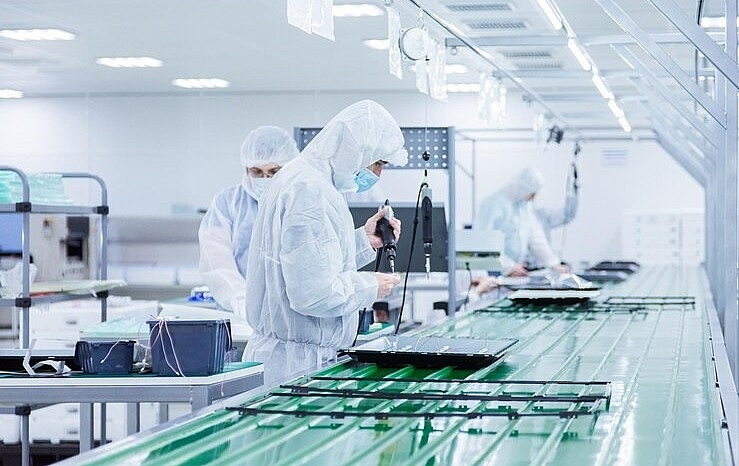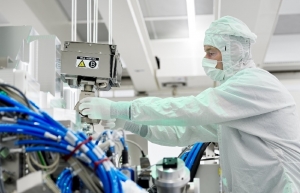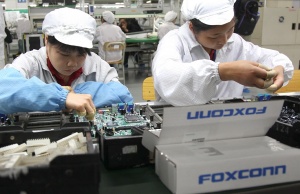EU to ramp up efforts to shield sensitive assets from China
 |
| EU to ramp up efforts to shield sensitive assets from China, illustration photo/ Source: freepik.com |
Brussels has bolstered its trade armoury to tackle what it deems to be risks to European economic security, following Moscow's invasion of Ukraine and global trade tensions.
The European Union has already proposed new rules that it says are necessary to keep the bloc competitive during the global transition to clean technology and to bring more production to Europe.
The fallout from the war in Ukraine hit Europe particularly hard, forcing the bloc to find alternative energy sources. Now, it wants to avoid a similar over-reliance on China, which dominates in green technology production and critical raw materials.
"The change in EU-China relations has been the driving force of this embrace of economic security, which is something extremely new for the EU," said Mathieu Duchatel, director of international studies at the Institut Montaigne think tank.
Wednesday's package is part of the EU's focus on de-risking but not decoupling from China, pushed strongly by European Commission President Ursula von der Leyen.
It is about addressing "risks to EU economic security, while ensuring that the EU remains a most attractive destination for business and investment", according to a draft text seen by AFP.
"Geopolitical tensions and the pace of technological change mean there is a need for more coordinated action at EU level," the document said.
When the European Commission publishes the package on Wednesday, there will be five initiatives including toughening rules on the screening of foreign direct investment (FDI).
The others include improved coordination of export controls, ways to promote research and development of dual-use technologies, and measures to strengthen research security.
Another draft text seen by AFP says member states must establish screening mechanisms.
"A significant share of FDIs in the EU still goes to member states that do not have a screening mechanism and this leaves vulnerabilities because potentially critical FDIs remain undetected," the document said.
The commission will also propose looking at the risks that could result from investments in certain sensitive technologies from the EU to third countries, and whether mitigating measures are needed.
In October the EU unveiled a list of four critical technologies -- advanced semiconductors, artificial intelligence, quantum computing and biotechnology -- that present the most sensitive and immediate risks related to technology security and leakage.
Experts said that tools must be paired with the political will to act.
Niclas Poitiers, a research fellow at Bruegel think tank, pointed to a 2021-2022 dispute between Lithuania and China over Taiwan as an example that tools are "part of the picture".
"The big problem we have right now is that every member state does whatever they want in the realm of foreign policy, and coordinating these things is very challenging," he said.
Not all EU countries are supportive of the commission's efforts.
"The ideas of decoupling, de-risking, isolating Eastern and Western economies are something that we definitely do not support," Hungary's Trade and Foreign Minister Peter Szijjarto said on Tuesday before meeting with his EU counterparts in Brussels.
He also said that screening foreign investments would be "a political procedure".
 | ASML chip machines blocked from export to China Cutting-edge chip manufacturing machines from Dutch semiconductor giant ASML have been blocked from export to China, according to the firm, amid a report of US pressure in the strategic sector. |
 | Apple suppliers spend billions diversifying from China A recent research report from TD Cowen cited by newswire Appleinsider has revealed that Apple suppliers are diversifying their manufacturing bases from China as a result of production delays, the country's COVID-19 measures, problems with energy supply, and the ongoing trade tensions with the United States. |
What the stars mean:
★ Poor ★ ★ Promising ★★★ Good ★★★★ Very good ★★★★★ Exceptional
 Tag:
Tag:
Related Contents
Latest News
More News
- France supports Vietnam’s growing role in international arena: French Ambassador (January 25, 2026 | 10:11)
- Foreign leaders extend congratulations to Party General Secretary To Lam (January 25, 2026 | 10:01)
- Russian President congratulates Vietnamese Party leader during phone talks (January 25, 2026 | 09:58)
- Worldwide congratulations underscore confidence in Vietnam’s 14th Party Congress (January 23, 2026 | 09:02)
- Political parties, organisations, int’l friends send congratulations to 14th National Party Congress (January 22, 2026 | 09:33)
- 14th National Party Congress: Japanese media highlight Vietnam’s growth targets (January 21, 2026 | 09:46)
- 14th National Party Congress: Driving force for Vietnam to continue renewal, innovation, breakthroughs (January 21, 2026 | 09:42)
- Vietnam remains spiritual support for progressive forces: Colombian party leader (January 21, 2026 | 08:00)
- Int'l media provides large coverage of 14th National Party Congress's first working day (January 20, 2026 | 09:09)
- Vietnamese firms win top honours at ASEAN Digital Awards (January 16, 2026 | 16:45)






















 Mobile Version
Mobile Version